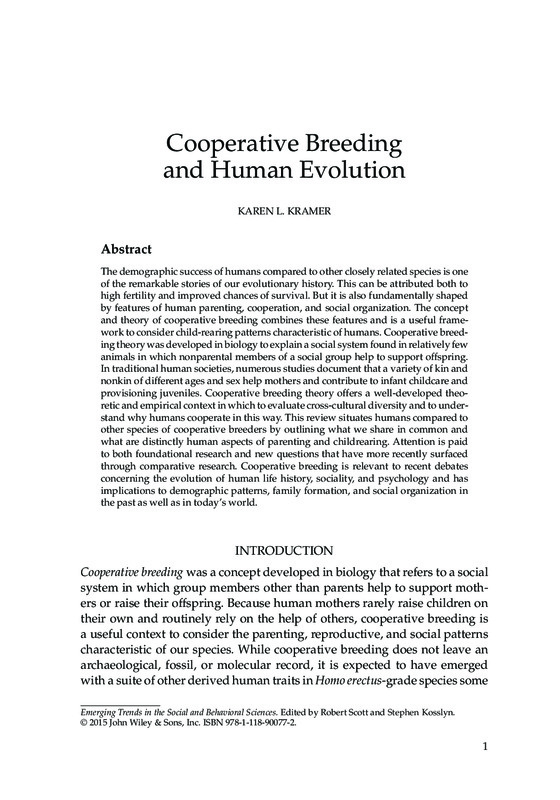Cooperative Breeding and Human Evolution
Title
Cooperative Breeding and Human Evolution
Author
Kramer, Karen L.
Research Area
Social Interactions
Topic
Primate Studies
Abstract
The demographic success of humans compared to other closely related species is one of the remarkable stories of our evolutionary history. This can be attributed both to high fertility and improved chances of survival. But it is also fundamentally shaped by features of human parenting, cooperation, and social organization. The concept and theory of cooperative breeding combines these features and is a useful framework to consider child‐rearing patterns characteristic of humans. Cooperative breeding theory was developed in biology to explain a social system found in relatively few animals in which nonparental members of a social group help to support offspring. In traditional human societies, numerous studies document that a variety of kin and nonkin of different ages and sex help mothers and contribute to infant childcare and provisioning juveniles. Cooperative breeding theory offers a well‐developed theoretic and empirical context in which to evaluate cross‐cultural diversity and to understand why humans cooperate in this way. This review situates humans compared to other species of cooperative breeders by outlining what we share in common and what are distinctly human aspects of parenting and childrearing. Attention is paid to both foundational research and new questions that have more recently surfaced through comparative research. Cooperative breeding is relevant to recent debates concerning the evolution of human life history, sociality, and psychology and has implications to demographic patterns, family formation, and social organization in the past as well as in today's world.
